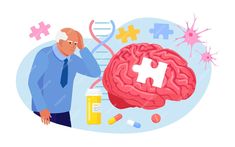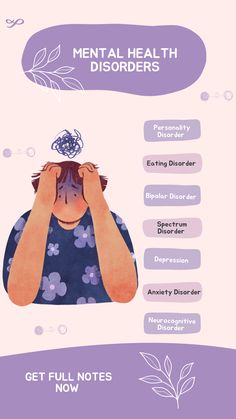Table of Contents
Mental Health: A Growing Concern

Introduction: Supporting Patients with Mental Illness
- Defining Mental Health and Mental Illness: Begin by defining mental health as a well-being encompassing emotional, psychological, and social factors. Mental illness, on the other hand, refers to a broad range of conditions that affect an individual’s thinking, mood, behavior, and ability to function. Emphasize that mental health exists on a spectrum, with everyone experiencing challenges at times.
- The Global Prevalence of Mental Illness: Highlight the alarming statistics on the prevalence of mental illness globally. Discuss how organizations like the World Health Organization (WHO) report that one in four people will experience a mental health condition in their lifetime.
- Introducing Mental Health Assessment: Introduce the focus keyword “mental health assessment” as a critical first step in effectively addressing mental illness. Explain that this comprehensive evaluation is the foundation for accurate diagnosis, treatment planning, and recovery.
The Burden of Mental Illness:
- A Spectrum of Disorders: Briefly discuss the various types of mental illnesses, such as:
- Anxiety Disorders: Characterized by excessive worry, fear, and physical symptoms like rapid heartbeat or shortness of breath.
- Mood Disorders: Including depression and bipolar disorder, these conditions significantly impact an individual’s emotional state.
- Psychotic Disorders: Conditions like schizophrenia can cause hallucinations, delusions, and disorganized thinking.
- Personality Disorders: These involve inflexible patterns of thinking, behavior, and emotional responses that cause distress or interfere with daily life.
- Exploring the Causes: While the exact causes of mental illness remain complex, emphasize the contributing factors like:
- Biological Factors: Genetic predisposition, brain chemistry, and neurotransmitter imbalances can play a role.
- Psychological Factors: Negative thought patterns, past trauma, and stressful life events can contribute.
- Social Factors: Poverty, social isolation, and lack of access to support systems can increase vulnerability.
- The Ripple Effect of Mental Illness: Discuss the significant impact mental illness has on individuals, including:
- Functional Limitations: Mental health challenges can make daily work, school, and social interactions difficult.
- Social Stigma: The stigma surrounding mental illness can prevent individuals from seeking help and lead to feelings of isolation.
- Suicide Risk: Mental illness is a major risk factor for suicide, highlighting the importance of early intervention and support.
The Role of Mental Health Nurses:
- Providing Comprehensive Care: Describe the role of mental health nurses as specialists who offer a holistic approach to caring for individuals with mental illness. This includes assessment, treatment planning, education, support, and advocacy.
- Collaboration is Key: Emphasize the importance of mental health nurses working as part of a multidisciplinary team, collaborating with psychiatrists, psychologists, social workers, and other healthcare professionals to ensure optimal care.
- Diverse Work Settings: Briefly introduce the various settings where mental health nurses work, such as:
- Hospitals (inpatient and emergency psychiatric units)
- Outpatient clinics
- Community mental health centers
- Schools
- Correctional facilities
By understanding the scope of mental health concerns and the crucial role of mental health assessment, we can delve deeper into the intricacies of this specialized nursing practice.
The Cornerstone of Care: Mental Health Assessment

Building the Foundation: Why Assessment Matters when Supporting Patients with Mental Illness
A thorough mental health assessment is the cornerstone of effective care in mental health nursing. This comprehensive evaluation provides the crucial foundation for accurate diagnosis, tailored treatment planning, and ongoing progress monitoring. By gathering in-depth information about an individual’s mental state, history, and current situation, mental health nurses can develop the most effective interventions to promote recovery and well-being.
The Pillars of Assessment: A Multifaceted Approach
A comprehensive mental health assessment typically incorporates several key components:
- Mental Status Examination (MSE): This is a structured interview and observation tool that allows the mental health nurse to assess a patient’s appearance, speech patterns, mood, thought processes, and behavior. This can be achieved through direct observation and open-ended questions encouraging patients to elaborate on their experiences.
- History Taking: A detailed personal history is crucial. This includes exploring the patient’s medical history, family history (including any mental health conditions in relatives), social history (such as living situation, work, and relationships), and a comprehensive account of current symptoms. Understanding the context and evolution of the patient’s mental health concerns is vital.
- Mental Health Screening Tools: Standardized tests and questionnaires can be valuable tools for mental health assessments. These tools can help assess the severity of specific symptoms or screen for potential disorders like depression, anxiety, or substance abuse. However, it is important to remember that these tools are not diagnostic and should be used with other assessment components.
Essential Techniques: Building Rapport and Effective Communication
Mental health nurses employ a variety of techniques to facilitate a successful assessment:
- Active Listening: It is paramount to create a safe and supportive environment where patients feel comfortable sharing their experiences openly and honestly. Active listening involves paying close attention to the words spoken and nonverbal cues and demonstrating empathy.
- Open-Ended Questions: Asking open-ended questions like “Can you tell me more about that?” or “How has this been affecting your daily life?” encourages patients to elaborate on their thoughts and feelings, providing a richer understanding of their situation.
- Risk Assessment: Identifying potential risks for self-harm or harm to others is a crucial aspect of mental health assessment. This may involve asking direct questions about suicidal ideation or homicidal thoughts while also observing signs of emotional distress or agitation.
- Cultural Competency: Providing culturally sensitive care is essential. Mental health nurses should be mindful of diverse backgrounds, beliefs, and communication styles to ensure culturally appropriate assessment and avoid misinterpretations.
Challenges on the Path: Overcoming Obstacles in Assessment
Despite its importance, conducting a comprehensive mental health assessment can present challenges:
- Patient Reluctance: Stigma surrounding mental illness can lead to patients feeling hesitant to disclose sensitive information. Building trust and rapport is essential to encourage open communication.
- Communication Difficulties: Language barriers, cognitive impairments, or cultural differences can make communication challenging. Utilizing interpreters, employing visual aids, and ensuring clear and concise communication are important strategies to overcome these hurdles.
- Limited Resources: Time constraints, inadequate staffing, or lack of access to specific assessment tools can hinder a comprehensive evaluation. In such situations, prioritizing the most crucial elements of the assessment and advocating for increased resources is vital.
By acknowledging these challenges and employing effective communication techniques, mental health nurses can ensure a successful assessment, paving the way for Part III: Utilizing Assessment for Effective Care. This section will explore how the information gathered through the mental health assessment informs treatment decisions and ultimately leads to improved patient outcomes.
Utilizing Assessment for Effective Care

From Assessment to Action: Guiding Care with Information
The information gleaned from a thorough mental health assessment is the roadmap for effective care. By analyzing the findings from the MSE, history-taking, and screening tools, mental health nurses can develop a comprehensive diagnosis and, in collaboration with other healthcare professionals, create an individualized treatment plan.
Diagnosis: Building a Shared Understanding
The mental health assessment plays a critical role in establishing a diagnosis. The information gathered helps the mental health nurse identify patterns of symptoms, assess the severity of the condition, and differentiate between different mental health disorders. This diagnosis provides a shared understanding between the patient, nurse, and the healthcare team, allowing targeted treatment interventions.
Treatment Modalities: A Spectrum of Options
Mental health treatment encompasses a variety of modalities, and the specific approach chosen will depend on the individual’s diagnosis and needs. Some common treatment options include:
- Psychotherapy: This talk therapy involves working with a mental health professional to explore thoughts, feelings, and behaviors. Different types of psychotherapy, such as cognitive behavioral therapy (CBT) or interpersonal therapy, can address specific challenges.
- Medication Management: Sometimes, medication may be prescribed to help manage symptoms. Psychiatrists typically handle medication management, while mental health nurses play a crucial role in patient education, monitoring side effects, and ensuring medication adherence.
- Supportive Therapies: These may include individual support groups, family therapy, or vocational rehabilitation. Supportive therapies can help individuals develop coping skills, build resilience, and navigate social and occupational challenges.
Patient-Centered Care: Tailoring the Approach
A core principle in mental health treatment is patient-centered care. This means that the treatment plan is developed collaboratively, considering the patient’s preferences, values, and cultural background. The information gathered during the mental health assessment helps the mental health nurse understand the patient’s perspective and tailor the treatment plan to maximize its effectiveness and acceptability.
Interventions Based on Assessment Findings:
The diagnosis and the patient’s unique needs will inform the specific interventions used. Here are some examples:
- Anxiety Disorders: For individuals with anxiety disorders, the assessment findings might indicate specific triggers or thought patterns. Based on this information, the mental health nurse might recommend CBT to help the patient identify and challenge these negative thought patterns, along with relaxation techniques to manage anxiety symptoms.
- Mood Disorders: In the case of mood disorders like depression, the assessment might reveal feelings of hopelessness or social withdrawal. The treatment plan might involve a combination of medication management to address the biological aspects of the disorder and supportive therapy to help the patient develop coping mechanisms and improve social connections.
- Psychotic Disorders: For individuals with psychotic disorders, the assessment might identify hallucinations or delusions. The treatment plan would likely involve medication management to regulate neurotransmitters and individual therapy to help the patient manage their symptoms. Family interventions might also be incorporated to support and educate family members.
Documentation: The Power of Clear Communication
Comprehensive and accurate documentation is essential after a mental health assessment. This documentation should include a detailed account of the assessment findings, the diagnosis, and the treatment plan. Clear documentation serves several purposes:
- Tracks Progress: Detailed records allow the healthcare team to monitor the patient’s response to treatment and make adjustments when needed.
- Facilitates Communication: Clear documentation ensures effective communication within the healthcare team, fostering collaboration between mental health nurses, psychiatrists, therapists, and other professionals.
- Ensures Continuity of Care: Accurate documentation is crucial for ensuring continuity of care if the patient transitions between different healthcare settings.
Collaboration and Advocacy: A Stronger Support System
Mental health nurses don’t work in isolation. Effective care requires collaboration with other healthcare professionals, such as psychiatrists who manage medication, psychologists who offer specialized therapy interventions, and social workers who can connect patients with community resources.
Advocacy: Championing Patient Needs
Mental health nurses also play a vital role in advocating for their patients. This may involve advocating for access to appropriate treatment and resources, educating others about mental illness to reduce stigma, and ensuring that patients’ rights are respected.
By utilizing the mental health assessment to guide diagnosis, treatment planning, and ongoing care, mental health nurses play a crucial role in promoting recovery and well-being for individuals with mental illness. Part IV will explore the evolving landscape of mental health nursing, highlighting the impact of technology and the ongoing need to address the growing demand for mental health services.
- The Future of Mental Health Nursing: Innovation and Challenges (400 words)
Embracing Change: The Evolving Landscape of Care
The field of mental health nursing is constantly evolving, with advancements in technology and a growing awareness of mental health needs shaping the future of this vital profession. This section will explore the exciting possibilities of technological integration, the ongoing battle against stigma, and the strategies to address the increasing demand for mental health professionals.
Technological Advancements: Redefining Accessibility
Technology has the potential to improve mental health assessment and care significantly. Telehealth platforms, for example, allow for remote consultations, making mental health services more accessible to individuals in geographically isolated areas or those with limited mobility. Online therapy tools and apps can provide additional support and resources for patients between appointments. While these advancements hold promise, ensuring equitable access to technology and maintaining the human connection remains a cornerstone of mental health care.
Addressing Stigma: A Collective Effort
The stigma surrounding mental illness remains a significant barrier to seeking help. Mental health nurses have a vital role to play in dispelling stigma and fostering open conversations about mental health. By educating the public about mental illness and advocating for mental health awareness campaigns, they can help create a more supportive and understanding environment.
The Growing Need for Mental Health Professionals: A Call to Action
The global demand for mental health professionals is projected to outpace supply. This shortage highlights the need for strategies to attract and retain qualified nurses in this specialized field. Increasing educational opportunities, offering competitive salaries and benefits, and promoting the rewarding nature of mental health nursing can all address this critical gap.
Conclusion: A Bright Future for Mental Health Nursing
By embracing technological advancements, championing mental health awareness, and advocating for increased resources, mental health nurses can continue to play a pivotal role. The mental health assessment, refined through ongoing research and practice, will remain the foundation for effective care, paving the way for a brighter future for individuals living with mental illness. In conclusion, this article has explored the significance of mental health assessments in providing comprehensive care for individuals with mental illness. The focus keyword “mental health assessment” was woven throughout the discussion, highlighting its centrality in diagnosis, treatment planning, and, ultimately, promoting recovery and well-being.





